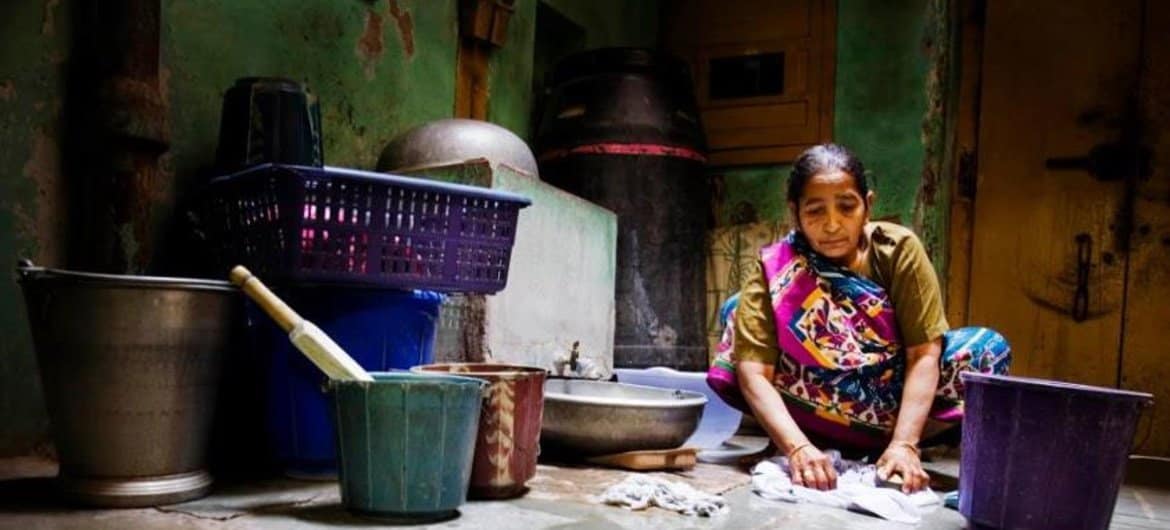Domestic Workers in India: A Call for Change

Domestic workers in India face severe challenges, including abuse and exploitation. Many of these workers are women from marginalized communities. Their stories often go unheard, but they highlight a pressing need for legal protection. The recent concerns raised by India’s Supreme Court about the treatment of domestic workers have reignited discussions about their rights and protections. This article explores the plight of domestic workers, the lack of legal frameworks, and the urgent need for reform.
The Harsh Reality of Domestic Work
Smitha, a domestic helper in Delhi, has endured years of mistreatment. For 28 years, she has worked tirelessly, but her experiences reflect a broader issue faced by many domestic workers in India. One incident stands out: she was publicly beaten by an employer who accused her of theft. Despite her pleas for justice, she was ultimately banned from the housing community where she worked. Smitha’s story is not unique; it is one of countless accounts of abuse and exploitation among India’s domestic workers.
The majority of these workers are women, many of whom are migrants from rural areas. They often belong to lower castes, which adds another layer of discrimination. The Supreme Court’s recent call for a law to protect these workers is a step in the right direction. However, this is not the first time such a proposal has been made. Previous attempts to create legal protections have failed, leaving workers vulnerable and without recourse.
The Need for Legal Protections
Despite the recognition of the issues faced by domestic workers, India has yet to establish a comprehensive legal framework to protect them. Previous bills proposed in 2008 and 2016 aimed to improve working conditions and register domestic workers, but neither has been passed. A national policy drafted in 2019 sought to include domestic workers under existing labor laws, yet it remains unimplemented.
Sonia George from the Self Employed Women’s Association (Sewa) emphasizes the need for a robust legal framework. She describes the drafted policy as one of the most comprehensive yet, but notes that successive governments have failed to act. As a result, domestic workers must rely on the goodwill of their employers for basic rights such as fair wages and respectful treatment.
Currently, India’s domestic workers are not recognized as employees under labor laws. This lack of recognition means they do not have access to minimum wage protections, safe working conditions, or the right to unionize. The absence of a legal framework perpetuates a patronizing relationship between employers and workers, hindering progress toward regulation and recognition.
The Role of Caste and Awareness
The caste system in India complicates the situation for domestic workers. Many workers come from marginalized castes, which affects their job opportunities and the types of work they are willing to accept. Some workers may agree to perform tasks that others from different castes would refuse. This dynamic reinforces existing inequalities and limits the potential for collective action among workers.
Moreover, there is a significant lack of awareness among domestic workers regarding their rights. Many do not know that they can benefit from existing laws, such as minimum wage mandates in certain states. The scattered nature of domestic work makes it challenging to identify and register workers, further contributing to their invisibility in the system.
To address these issues, experts suggest establishing systems to register domestic workers. This would help to recognize their contributions and provide them with the protections they deserve. Additionally, redefining the concept of domestic work is crucial. It is often viewed as unskilled labor, but in reality, it requires a range of skills, from caregiving to cooking.
The Path Forward: A Call for Change
India’s failure to ratify the International Labour Organization’s Convention 189 is another glaring issue. This convention aims to ensure that domestic workers receive the same rights and protections as other workers. Despite voting in favor of the convention in 2011, India has not yet conformed to its provisions.
The recent case involving the wealthy Hinduja family, accused of exploiting domestic workers, highlights the urgent need for reform. The family faced allegations of trafficking vulnerable individuals and forcing them to work under harsh conditions. Such cases underscore the necessity of a legal framework to regulate private recruitment agencies and protect workers from exploitation.
The path forward requires a change in mindset among decision-makers. Many individuals in positions of power are also employers of domestic workers, creating a conflict of interest. For meaningful change to occur, society must recognize the value of domestic work and advocate for the rights of those who perform it. Only then can India begin to address the systemic issues that have long plagued domestic workers.
Observer Voice is the one stop site for National, International news, Sports, Editor’s Choice, Art/culture contents, Quotes and much more. We also cover historical contents. Historical contents includes World History, Indian History, and what happened today. The website also covers Entertainment across the India and World.

